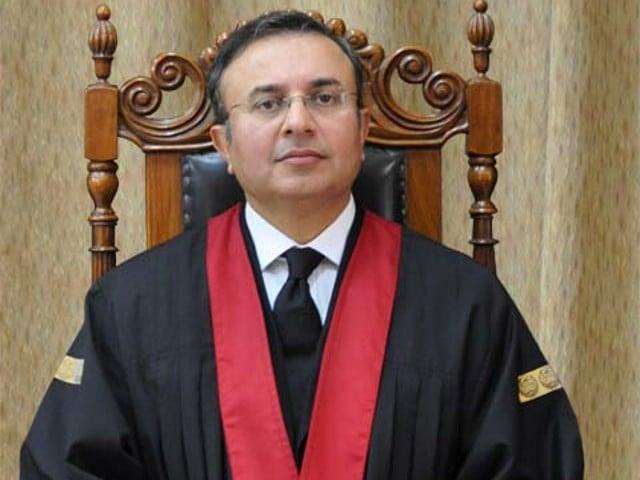Islamabad:
The Supreme Court’s justice Syed Mansoor Ali Shah has called on Pakistans (JCP) to share the protocol from all its meetings on the occasion of Chief Justice of Pakistan Yahya Afridi.
In a letter written on June 25 to the JCP secretary, Justice Shah raised concerns about not sharing the protocol from the JCP meetings to the public.
“I raise a question of institutional concern: Commission’s discontinuation of the practice of releasing the protocol from his meetings to the public,” the letter says.
Justice Shah believes that the judiciary, as a trend-setting for other state institutions, must adhere to the highest standards of openness and public accountability.
“The appointment of judges is a public act of far -reaching consequences. The population of Pakistan has the right to know how the judges of the supreme court in the country are chosen, what considerations are taking place and whether constitutional standards are used in good faith.
“The opacity, which now surrounds the Commission’s work, is not healthy, not democratic and not in accordance with the Supreme Court’s image as guardian of constitutional values,” the letter says.
He; Therefore calls on the Commission that the protocol from all JCP meetings held during the current President (CJP Afridi) will be released to the public in accordance with previous practice.
Abdul Moiz Jaferii Advocate said that the central prerequisite for the newly introduced processes related to the judiciary was that the method and process of court appointments is made more transparent.
A basic feature of this transparency was the release of minutes that let the people see the process of determination. This has now ceased. For no reason he adds.
After the passage of the 26th constitutional amendment, it has the executive dominance in the process of judicial appointment and selection of judges for the constitutional benches.
There is no explanation for why the senior judges were not nominated for constitutional benches in the Supreme Court as well as Sindh High Court.
There is no explanation for why disagreeing judges are sidelined by the Commission.
Recently, JCP ignored the appointment of senior most judges to their appointment to the Supreme Court’s head of the Supreme Court.
A lawyer says they were just ignored because they were not the government’s like -minded ‘judges.
Similarly, with a valid reason, some senior judges, especially Peshawar High Court -Judge Ejaz Anwar, were not nominated for the appointment of SC judge.
There is no explanation like how JCP changed his opinion of a judge whose integrity was under question a year ago.
It is also witnessed that the majority of the state -sponsored lawyers are appointed judges for the high courts under CJP Afridi’s term of office.
The lawyers whose integrity and competence are without a doubt were not nominated for agreements when they were not the government’s like -minded ‘
CJP Afridi so far could not develop a strategy to minimize the influence of the exercise of the appointment of judges.
About 50 judges are appointed in high courts as well as the Supreme Court after the adoption of 26. Constitutional amendment.
During the office of ex-CJP Qazi Faez Isa, committees who worked in accordance with the Supreme Court’s practice and procedural law were participated in the Supreme Court site. However, this practice is interrupted during ex CJP Yahya Afridi Tenure.



